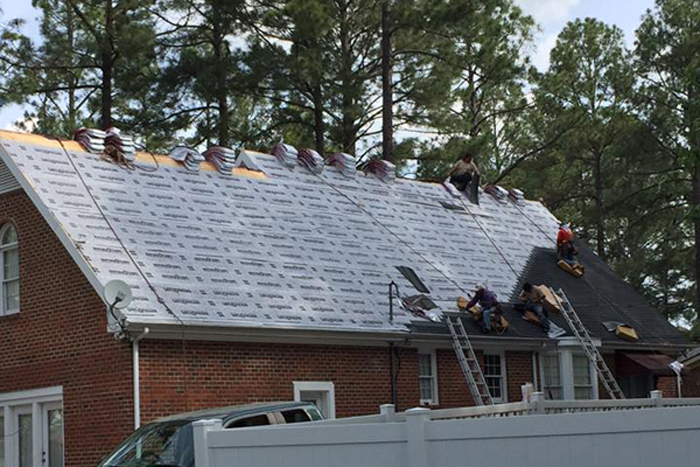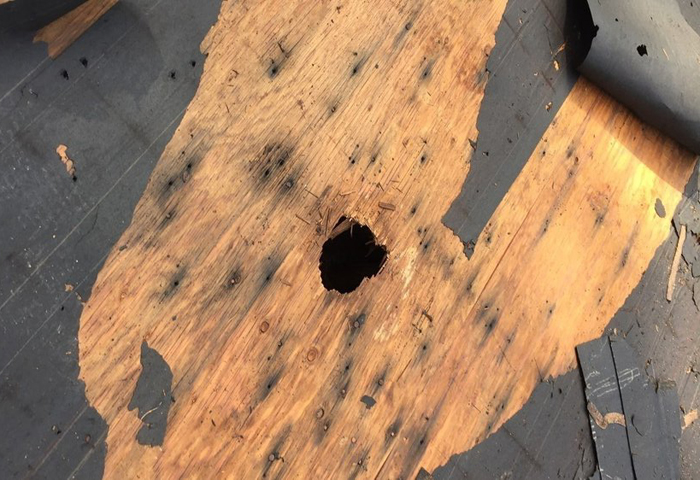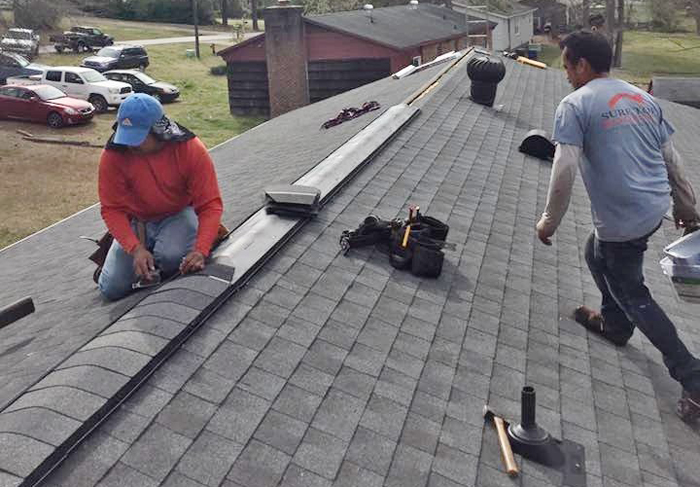Is it time for a new roof? As a homeowner, it’s essential to understand the frequency of roof replacement. Whether you’re considering buying a new home or your current roof is aging, knowing what to expect—and when to find a roofing contractor—can help you plan and budget accordingly.
How Often Should You Replace a Roof?
On average, you should replace a roof every 15 to 30 years. However, several factors determine when it is time for a new roof, including roof materials and quality, installation quality, and the climate where you live. Also, roof inspections, maintenance, and repair affect a roof’s lifespan and affect when replacement is advisable.
Contact at least two licensed roof contractors for estimates if you need a new house roof. Compare details about each type of contractor’s work, what is needed to prepare your roof for replacement, and the quality and brands of materials they use.
What Is the Average Lifespan of a Roof?

The average lifespan of a roof depends on its materials, such as asphalt shingles, metal, or tile. The averages below depend on several factors, including the quality of materials and installation and regular inspections and maintenance. Below are the average lifespans of roofing materials.
1. Asphalt shingles
Asphalt shingles are among the most popular roofing materials, lasting 15 to 30 years. However, the roof’s longevity depends on the shingle and installation quality, the climate where you live, and getting roof inspections to detect damage to roof materials or fixtures.
2. Metal roofs
A metal roof’s durability allows it to last up to 50 years, sometimes longer, with proper maintenance. Metal roofing resists fire, insect damage, and rot for long-lasting protection for your home.
3. Tile roofs
Concrete or tile roofs offer Spanish or Mediterranean flair while withstanding extreme weather and last over 50 years. However, the materials are heavier than other options and may require structural support.
4. Wood shake shingle roofs
Although wood shake shingles give a home a natural or rustic style, they require regular maintenance. The singles are susceptible to mold and discoloration and have a higher risk of fire damage. Wood shake roofs last about 25 years.
What Factors Affect a Roof’s Lifespan?

Factors that affect a roof’s lifespan and how often you need to replace it include the contractor you choose, roof materials, installation quality, the climate where you live, and frequency of roof inspections and maintenance.
- Roof materials – Although low-quality materials can save you money, they lack the durability and longevity of quality roofing materials.
- Roof installation quality – Find a licensed roofing contractor to ensure your roof has a good foundation before replacing the shingles.
- Roof decking (sheathing) – Wooden boards that frame the roof.
- Drip edge – Thin metal strips at the roof’s edge help divert water.
- Ice and water shield – Moisture-proof material protects roof valleys from ice and water buildup.
- Underlayment – Layers of synthetic material cover the roof decking and keep moisture out.
- Roof flashing – Thin metal against chimneys, valleys, or other roof fixtures protects them from moisture leaks and damage.
- Shingles or other materials – Carefully placed shingles or other materials are the finishing touches for an attractive roof that adds curb appeal to your home.
- Ridge capping – Thick, curved material covers the seams where roof slopes meet and creates a moisture barrier.
- Roof vents – Your home and attic need airflow to promote roof longevity, preventing moisture inside your home, such as ceiling stains or moldy closets.
- Climate – Excessive heat or moisture can cause roofing materials to deteriorate faster.
- Frequency of roof inspections – A roofing contractor must closely examine your roof and its materials and fixtures to spot signs of damage.
- Roof maintenance and repair
Summary
You can minimize how often your home needs a new roof. Understanding the factors that affect its lifespan will help it last. Regular inspections, quality materials, and a licensed roofing contractor for installation can help you replace your roof less frequently.
Licensed roofing contractor Thurston Roof serves Raleigh, NC, and surrounding areas, including Durham and Smithfield.

